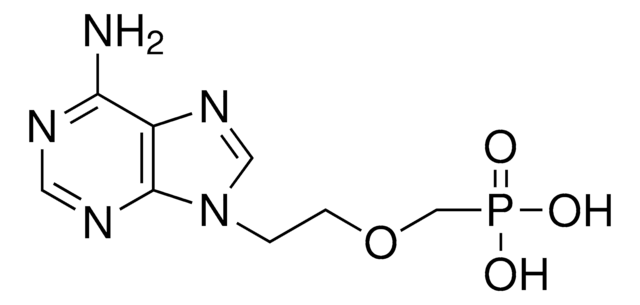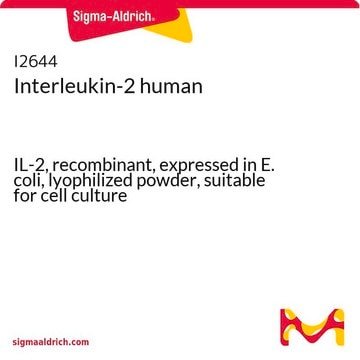All Photos(1)
About This Item
Empirical Formula (Hill Notation):
C12H13N5O3
CAS Number:
Molecular Weight:
275.26
MDL number:
UNSPSC Code:
41106305
PubChem Substance ID:
Recommended Products
form
solid
storage temp.
−20°C
SMILES string
OCC1OC(CC1O)n2cnc3c2ncn4ccnc34
InChI
1S/C12H13N5O3/c18-4-8-7(19)3-9(20-8)17-6-14-10-11-13-1-2-16(11)5-15-12(10)17/h1-2,5-9,18-19H,3-4H2
InChI key
XQQIMTUYVDUWKJ-UHFFFAOYSA-N
Storage Class Code
11 - Combustible Solids
WGK
WGK 3
Flash Point(F)
Not applicable
Flash Point(C)
Not applicable
Personal Protective Equipment
dust mask type N95 (US), Eyeshields, Gloves
Choose from one of the most recent versions:
Certificates of Analysis (COA)
Lot/Batch Number
Don't see the Right Version?
If you require a particular version, you can look up a specific certificate by the Lot or Batch number.
Already Own This Product?
Find documentation for the products that you have recently purchased in the Document Library.
Mayura Meerang et al.
Free radical biology & medicine, 44(10), 1863-1868 (2008-03-18)
Thalassemic diseases including homozygous beta-thalassemia and beta-thalassemia/Hb E (beta-Thal/Hb E) are prevalent in Southeast Asia. Iron overload is a common complication in beta-thalassemia patients which induces intracellular oxidative stress and lipid peroxidation (LPO). LPO end products generate miscoding etheno adducts
Jagadeesan Nair et al.
Biochemical and biophysical research communications, 336(2), 478-482 (2005-09-03)
Reactive oxygen species (ROS) and lipid peroxidation (LPO) play a role in aging and degenerative diseases. To correlate oxidative stress and LPO-derived DNA damage, we determined etheno-DNA-adducts in liver and brain from ROS overproducing OXYS rats in comparison with age-matched
Plamen P Christov et al.
Chemical research in toxicology, 23(8), 1330-1341 (2010-06-29)
Oligonucleotides were synthesized containing the 7-(2-oxoheptyl)-etheno-dGuo adduct, which is derived from the reaction of dGuo and the lipid peroxidation product 4-oxo-2-nonenal. The in vitro replication of 7-(2-oxoheptyl)-etheno-dGuo by the model Y-family polymerase Sulfolobus solfataricus P2 DNA Polymerase IV (Dpo4) was
Jagadeesan Nair et al.
Mutation research, 621(1-2), 95-105 (2007-04-07)
Atherosclerosis and cancer are characterized by uncontrolled cell proliferation and share common risk factors, such as cigarette smoking, dietary habits and ageing. Growth of smooth muscle cells (SMCs) in atherosclerotic plaques may result from DNA damage, caused either by exogenous
K Arab et al.
Carcinogenesis, 30(2), 282-285 (2008-11-28)
The impact of DNA damage commonly thought to be involved in chronic degenerative disease causation is particularly detrimental during fetal development. Within a multicenter study, we analyzed 77 white blood cell (WBC) samples from mother-newborn child pairs to see if
Our team of scientists has experience in all areas of research including Life Science, Material Science, Chemical Synthesis, Chromatography, Analytical and many others.
Contact Technical Service






